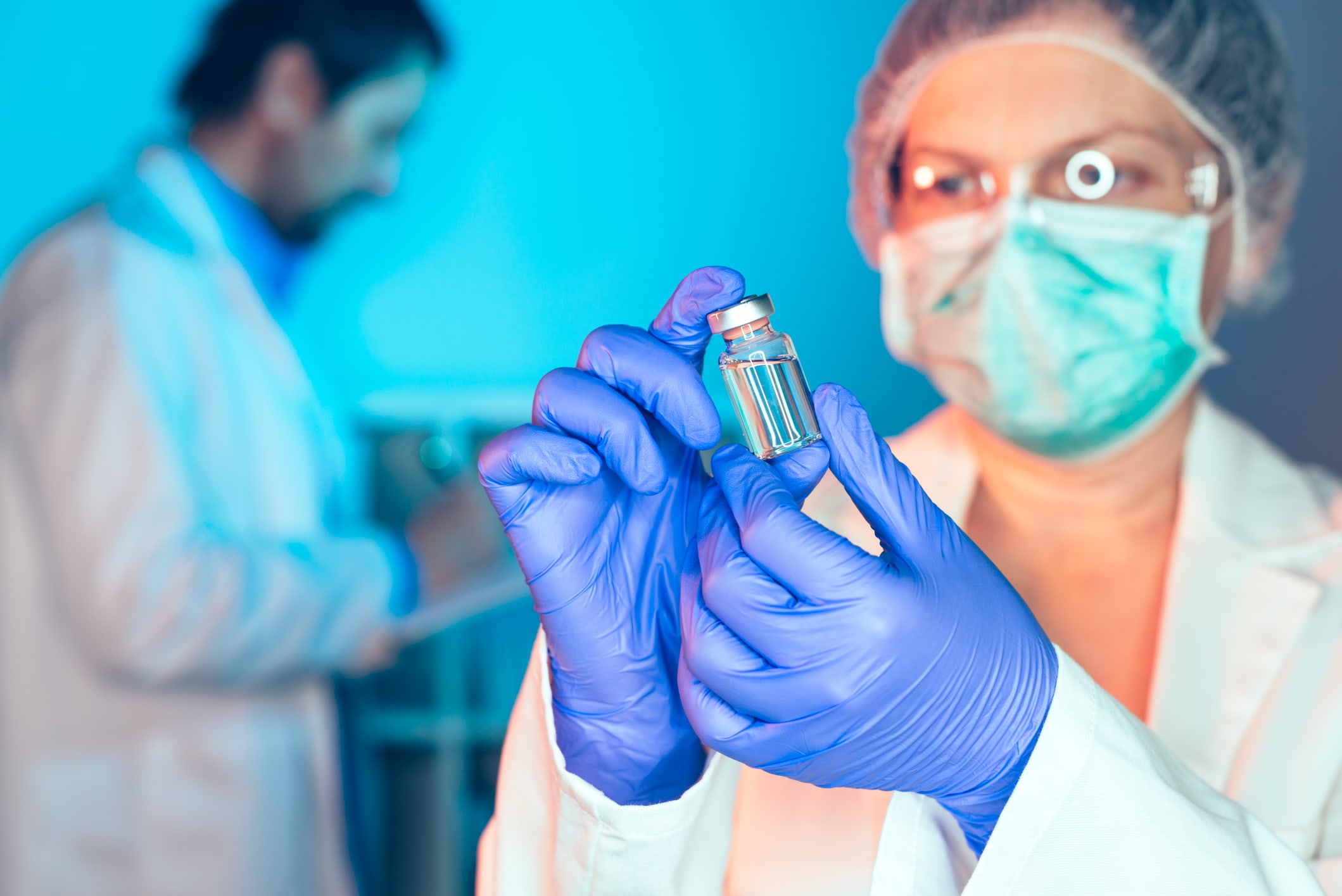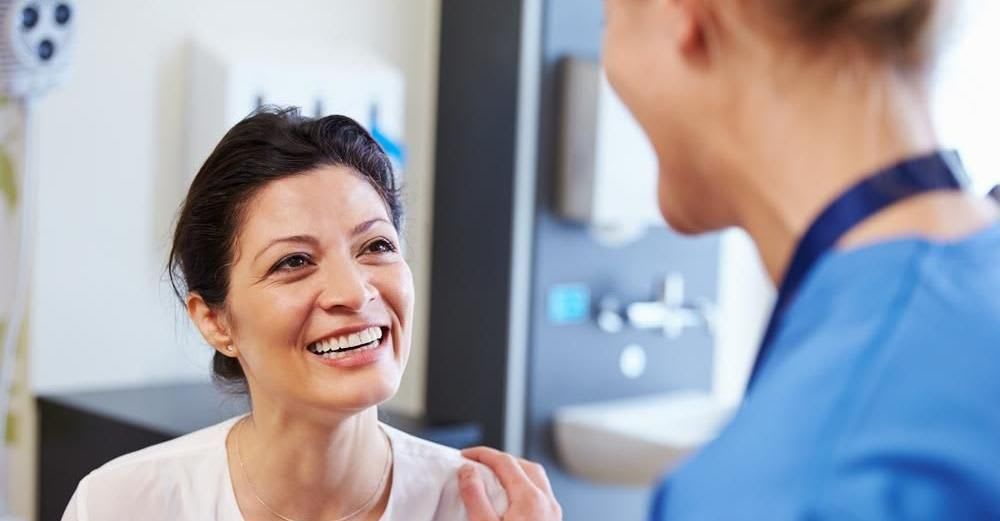What is Immunology and Why Study It?
Over 200 years ago a man named Edward Jenner decided to purposefully infect an eight-year-old boy with a disease that had killed almost 10% of England’s population. As you can imagine, a few people were rather suspicious of this new 'scientific' method. Jenner did it anyway, and the young boy, James Phipps, didn't die. In fact, he displayed no symptoms whatsoever and went on to live a happy life in a free lease cottage paid for by Mr Jenner. More importantly, Phipps went down in the history books as the first person to receive a successful vaccine, giving birth to a new brand of medicine that has saved countless lives: immunology. Here's a look at what it is and why you should study it.
- Education

What is immunology?
Immunology is the study of the human immune system. It's an important branch of the biological sciences, as well as one of the most complex. A vast number of internal and external variables interact to create a balanced immune system. These include age, diet, access to medical services, as well as socioeconomic factors, such as income level and employment type. For example, people who work closely with animals are more likely to contract zoonotic diseases. These are infections that can be transmitted between animals and humans. The first humans to contract Avian flu worked in live poultry farms, so as a result many of the early cases of swine flu and SARS were traced back to live food markets.
Immunology focuses on maintaining and restoring the natural balance of the human immune system. This includes researching preventative measures and public health initiatives to promote a healthier lifestyle. It also involves diseases caused by immune system dysfunction and develops new treatments that can manage or cure conditions by altering the way the immune system functions. Immunologists also play a vital role in developing and testing new vaccines. At the moment, teams of immunologists across the globe are trying to create a vaccine for COVID-19.
The first immunologist
Edward Jenner is generally considered as the world's first immunologist. In the late 18th century, the English physician noted milkmaids seemed immune from smallpox, an infectious disease that had killed around 10% of the population. The majority of milkmaids had previously contracted a less virulent strain of smallpox known as cowpox. So in 1796, Jenner took fluid from a cowpox blister and scratched it into the skin of an eight-year-old boy. When the boy recovered, Jenner repeated the process, only this time with pus from a smallpox blister. No disease developed, and James Phipps became the first recipient of a successful vaccine.
Jenner’s counter-intuitive approach received plenty of resistance. Many people called him reckless, while more than a few used much harsher words. However, Jenner's experiment changed the face of medicine forever and altered the course of human history for the better. Leading scientists and historians believe Jenner's discovery saved "more lives than the work of any other human."
Jenner's work went on to influence several more major scientific breakthroughs, including Louis Pasteur's germ theory of disease, the invention of the microscope, and Paul Erlich's discovery of antibodies. What's more, the emergence of new scientific disciplines like molecular biology and organic chemistry would not have been possible without the knowledge gained by the first generations of immunologists.
Different types of immunologists
Some immunologists work purely on research. They spend the majority of their time conducting experiments in the lab or writing research papers. Lab work is ideal for academically-minded people. If you are more of a people person, then you will probably prefer clinical immunology. This is a patient-facing role in a hospital or other medical setting, where you help diagnose and treat patients with autoimmune diseases. Alternatively, you could oversee vaccination programs or support people who have recently received an organ transplant.
Environmental immunology is another career path. It looks at how environmental factors impact our immune system. There's plenty of hard science involved in environmental immunology, especially when you are analyzing chemical substances used in manufacturing, air pollutants, or new types of food additive. However, environmental immunologists are just as concerned with socio-economic factors. For example, researchers have found links between the increase of Crohn's disease and post-industrial sedentary lifestyles.
The Chinese University of Hong Kong recently commissioned a similar study. It will explore how rapid economic growth across East Asia has changed eating habits, which may account for a sharp rise in the number of people living with irritable bowel syndrome. Some environmental immunologists study the immune systems of wildlife, while veterinary immunology is a great option for animal lovers.
A day in the life of an immunologist
Immunologist Dr. Steven Bensinger manages a lab that researches the relationship between metabolism and the immune system, at UCLA's David Geffen School of Medicine. His team has made revolutionary discoveries that are changing the way scientists think about the human body. "When a person becomes infected with a virus, it attempts to replicate by taking over the host's metabolism," says Dr. Besinger. "We've discovered that the immune system senses that change and turns on a metabolic response to fight the virus. No one would have thought that five years ago."
So what does it take to achieve these exciting breakthroughs? Dr. Bensinger explains: "I really do spend lots of time thinking about science. But I also have to keep up with the literature, review papers from other scientists, and write my own papers and grants." He then has to plan experiments, oversee a large team of people, and complete the day to day administration duties. Then he has teaching commitments. Like most leading immunologists, Dr. Besinger instructs medical students as an associate professor and directs an academic research initiative. His days are always busy and challenging, but this is all par for the course when you are doing such vital work.
How to become an immunologist
To become an immunologist, the first thing you need is a life science degree. You could then go to medical school, where you can decide to specialize in immunology. Alternatively, you can train to become a clinical specialist by enrolling in a Scientist Training Programme (STP.) STPs are a full-time, work-based program that lasts for three years. STPs are intense, but a great way to learn the practical skills you need to become a successful immunologist. Moreover, some STPs offer a fixed salary for the duration of the course.
Postgraduate study is another excellent route into immunology. Arianne Brandsma works as a researcher in the Laboratory of Translational Immunology at UMC Utrecht University. She secured the position after completing an MSc in Clinical Immunology at the same school. Here's what she said about her time as an immunology postgrad: “The courses are pretty intense, but also very interesting and interactive. They give you a good level of knowledge before you start your first internship. My first internship was on malaria vaccines. Now I work full-time on antibodies that can kill tumor cells and the receptors they bind to."
Earning potential
An immunologist is a highly trained and respected position. As such, it tends to be very well paid. If you work in a hospital setting or the public sector, you can expect a starting salary of around $50,000. Experienced practitioners with an M.D. can command salaries of over $200,000. Immunologists working for private healthcare groups, universities, pharmaceutical companies, and biotechnology companies have an average salary of $100,000. Having a PhD or managerial experience will significantly boost your earning potential in the private sectors.
Immunology is an excellent career path for anyone with a passion for science and helping others. It also offers long-term job stability, plenty of opportunities for career progression, and the generous salary package that comes with such an important and well-respected position.

Find your perfect program
Use our search to find and compare programs from universities all over the world!
Immunology
Ashley Murphy
Author
After graduating with a degree in English literature and creative writing, Ashley worked as a bartender, insurance broker, and teacher. He became a full-time freelance writer in 2016. He lives and writes in Manchester, England.
Find a program in these categories
Read related articles

What You Should Know If You Want To Practice Medicine Abroad

Five Countries to Choose for Nursing Degrees
